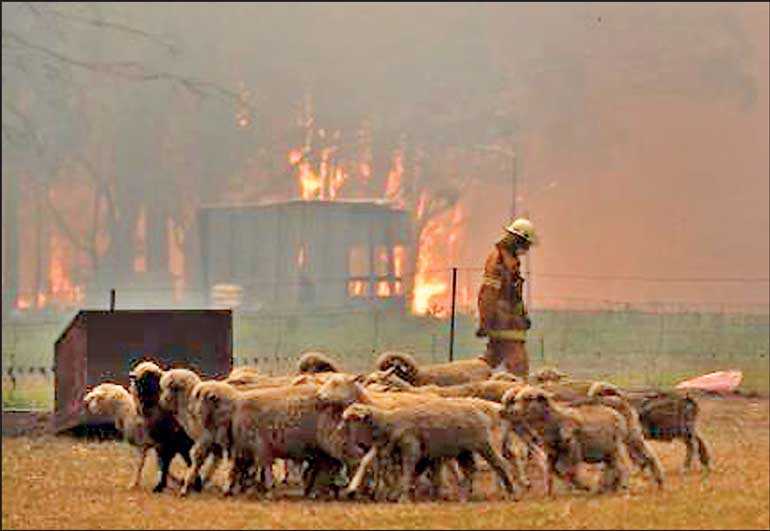Friday Feb 20, 2026
Friday Feb 20, 2026
Friday, 20 December 2019 00:00 - - {{hitsCtrl.values.hits}}

SYDNEY (Reuters): Australia’s most populous state declared its second emergency in as many months on Thursday as extreme heat and strong winds stoked scores of uncontrolled bushfires, some on Sydney’s doorstep.
In the same week the continent recorded its hottest day on record, thick smoke blanketed the harbour city, shrouded the Opera House and brought many outdoor activities to a halt.
The state of emergency declaration gave firefighters broad powers to control government resources, force evacuations, close roads and shut down utilities across New South Wales, where 100 wildfires are burning.
With more than half of those fires uncontrolled and temperatures forecast to hit 45 degrees Celsius (113°F) in some areas, officials warned residents to be on high alert.
“The biggest concern over the next few days is the unpredictability, with extreme wind conditions, extremely hot temperatures,” NSW Premier Gladys Berejiklian told reporters in Sydney.
Days out from Christmas, a time when many Australians head to the coast for the holidays, Berejiklian warned people to reconsider travel plans.
“Please do your research before you embark anywhere across the state,” she said. “Please make sure you are prepared to change your plans should circumstances change.”
Australia has been battling wildfires across much of its east coast for weeks, leaving six people dead, more than 680 homes destroyed and nearly 3 million acres (1.2 million hectares) of bushland burnt.
Prime Minister Scott Morrison has weathered a storm of criticism on social media in recent days for going on an overseas holiday during the emergency, adding to criticism that his government is failing to deliver adequate climate change policies.
As the media reported Morrison was in Hawaii with his family to enjoy a break, about 500 protestors gathered outside his official Sydney residence to demand urgent action on climate change. Morrison’s office refused to confirm his whereabouts.
Some 1,700 firefighters have been deployed across NSW, but officials warned that was still not enough to cover every potential danger and urged people in high risk areas to evacuate while it was still safe to do so.
The current state of emergency will last for seven days, while a total fire ban that has been in place since Tuesday will remain until midnight on Saturday.